#summertime the gershwin version
Text
Ranking Lana Del Rey’s covers
NOT the live performances (stage or radio etc.). This is also my opinion, and all subjective.
Cry Me A River
This doesn’t feel like a Lana song - usually Lana cleverly makes covers her own, whereas this takes the instrumental straight from the source and slaps Lana’s voice on top. She is wonderful, of course, but it feels nothing more than a personal experiment.
You’ll Never Walk Alone
Lana pulls this song off well but it just doesn’t feel like her song. It tends to drag and I think it could have benefitted from some extra instrumental. It feels very much like a bare bones cover rather than a passion project (for music, I know she donated to charity with this song) and I rarely listen to it.
Happy Birthday, Mr President
Lana encapsulates Marilyn Monroe beautifully and honours her with a tribute to one of her most memorable moments, but as it was tacked on to National Anthem it loses its power. If it had been a separate release in some way I think it could have shone more.
Don’t Let Me Be Misunderstood
I’m not fond of this cover personally but Lana reshapes the track to fit with her voice and Honeymoon, and she does a good job of it.
For Free
It’s a lovely cover, and the other vocalists are wonderful. However, I always skip this song, uninterested by it (a subjective reason rather than objective). Lana does pick a good song for Chemtrails Over the Country Club, and the mixture of voices/female talent is feel-good.
The Good Life
A somewhat dreary yet heartstring-tugging song, The Good Life doesn’t feel complete or particularly strong compared to a lot of her other covers but it’s a decent job and gets me in the feels.
Chelsea Hotel No.2
It’s a slow track, with Lana’s drawling and rich vocals warm to listen to. I don’t tend to listen to this song much more out of personal taste. However, Lana owns this song beautifully and perfectly suits her Ultraviolence era - the moodiness, the seductiveness, the sadness.
Summertime The Gershwin Version
There’s a definite summer feel to this song, an uneasy instrumental with a light touch. It’s gentle and meandering, perfect to imagine a summer’s day to, and it would be great to hear more offbeat (in terms of vibe, not sound) songs like this from Lana.
Once Upon A Dream
This Gothic rendition of the classic Disney song certainly fits the darkened Princess story perfectly. Lana delves into villainous territory, her voice steady and almost warning as she uneasily vocalises and hums. However, I have to want to listen to this song and find the right mood to fit it.
Blue Velvet
Long, drawling and sprawling. Lana reminds of the film of the same name (which the song is heard in) and has the perfect Gothic-retro feel to make this vintage song timeless. I prefer to listen to other songs on The Paradise Edition, but Lana underlines her ability to go to different genres, eras and sounds whilst bringing her own personal touch to make it fresh.
Season of the Witch
This is perfect for Autumn: plucky, strange and bringing to mind a black-gowned witch causing havoc in her sixties neighbourhood. Lana gets the little vocal whispers and retro-feel perfect, and she emulates the right kind of personality for it.
Summer Wine
Lana is innocent, feminine and seductive in this tale of deceit and crime, and she uses all of her country-touched charms to bring the Western thief of the story to life. She matches Barrie James O’Neill’s deep twang perfectly, and they complement each other’s voices naturally. The music is also wonderful, as are her light-hearted vocalisations and her personality bled into it.
You Must Love Me
Lana is tender, raw and honest in this wide-eyed interpretation. There is a hopefulness to Lana’s voice, a gentle desire and a simplicity that lets Lana’s interpretation just enough from the original to bring something different. Lana isn’t the brash, glamorous lush she often acts as in her music (particularly her first few albums), but instead gold-hearted and soft.
Some Things Last a Long Time
This could be a Lana song. It suits her Ultraviolence era prettily, a barren, cold and dead-eyed gloom-song. Lana is subtle, heartbroken, yet strong and clear in her words. It’s a beautiful version, and deserves multiple listens to appreciate this often forgotten pearl.
The Other Woman
Lana takes the perspective of the quietly simmering and sad wife and flips it, pouring melodramatic grief into the character of the other woman who never has the man two women love. It is perfect for Ultraviolence, and the added record-playing effect to the sound sends you to another era entirely. It’s wailing, it’s pained and it’s bitter, easy to bring tears to the eyes.
Doin’ Time
This song sat happily on the charts and it’s easy to see why. It’s easy-going, breezy and certainly Lana’s own in this version. It’s a little bit different to her other music - one of her more bop-ish tracks, with hints of seductiveness, danger and eye-rolling insults. However, the dance-friendly music and the dollop of sunshine that radiates from this summer track is hypnotic.
#lana del rey#lana del rey covers#cry me a river#youll never walk alone#happy birthday mr president#dont let me be misunderstood#honeymoon#for free#chemtrails over the country club#the good life#chelsea hotel no 2#summertime the gershwin version#once upon a dream#blue velvet#born to die: the paradise edition#season of the witch#summer wine#you must love me#some things last a long time#the other woman#ultraviolence#doin' time#norman fucking rockwell#barrie james o'neill#zella day#weyes blood
14 notes
·
View notes
Note
🎧
one of these mornings you’re gonna rise up singing, you gonna spread your wings and take, and take to the sky.
1 note
·
View note
Text
Descriptions & Propaganda
Summertime
Composed by George Gershwin, with lyrics by DuBose Heyward
Notable versions: Billie Holiday (x), Sidney Bechet (x), Louis Armstrong and Ella Fitzgerald (x)
Propaganda: simply one of the greatest songs of all time. sampled/syncopated in so many other great songs too (e.g. doin time by sublime/lana…)
every version of it from ella fitzgerald to sublime EATS... what other song has done it like this
didn’t put them in notable versions bc they’re not jazz but some bonus folk covers bc i find it works surprisingly well as a folk song: peter seeger (x) and doc watson (x)
St. James' Infirmary
Traditional
Notable versions: Louis Armstrong (x), Cab Calloway (x), Artie Shaw (x)
Propaganda:
i love how this song starts as a lament and then switches on a dime to such a cool, proud, almost bragging defiance of death. and of course that trumpet!! that trombone!!
imo this song exemplifies the rich tapestry of popular music and the links between the jazz standards, the blues, and the english, irish, and appalachian folk traditions. people sort of fight over whether this song is influenced by the unfortunate rake/rakes progress/young trooper cut down in his prime/etc., (musicologist a. l. lloyd’s theory) or not- there’s a whole book about it, “i went down to the st. james infirmary” by robert harwood.
but none of that really matters. if you love the blues and you love folk music this song is like a familiar hug, full of the themes and motifs you recognize but maybe can’t quite pin down. the mysterious origins are part of the fun. extra propaganda: if you know/love/have ever listened to “blind willie mctell” by bob dylan, this song is the father.
youtube
i like the way this one sounds but i also think it's historically/anthropologically pretty cool... it's part of the lineage of "the unfortunate rake" which also spawned popular folk songs like "streets of laredo" and possibly "house of the rising sun" (debated among experts but possible), but this one unlike those others was taken up by jazz artists starting in the 1920s and eventually came to be regarded as a jazz standard. fascinating stuff!
96 notes
·
View notes
Text
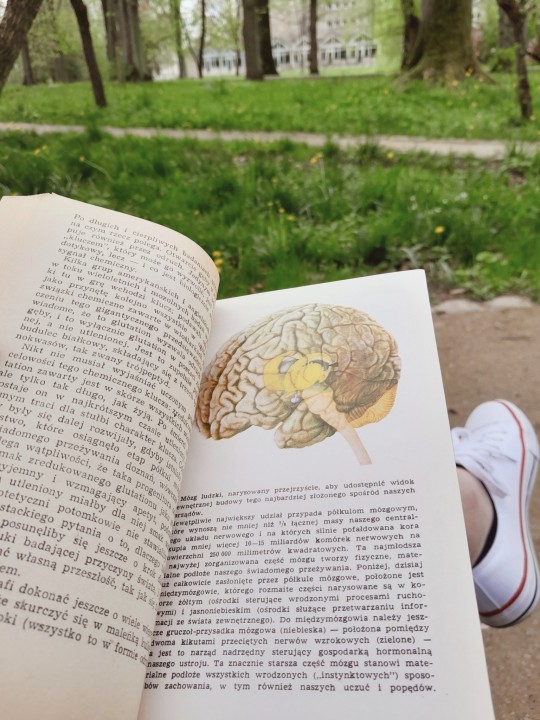
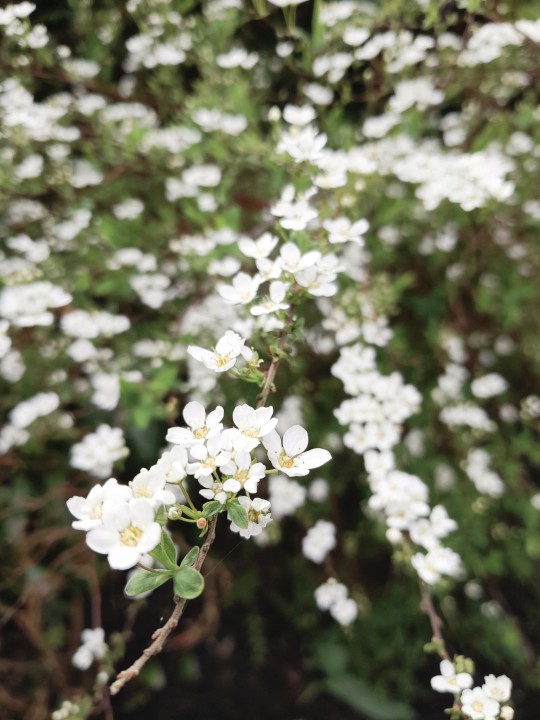


Summertime, and the livin' is easy...
Just kidding, it's not easy at all now. I am currently preparing to write about Konrad Lorenz and his baby schema (Kindchenschema). This is reflected in cute teddy bears, Mickey Mouse and the faces of… women. Keep fingers crossed!
#light academia#light acadamia aesthetic#studyblr#study motivation#soft academia#ethology#studyspo#study aesthetic#study blog#Spotify
22 notes
·
View notes
Text
my favorite underrated instrumental version of Gershwin’s Summertime, [youtube link here]
56 notes
·
View notes
Text

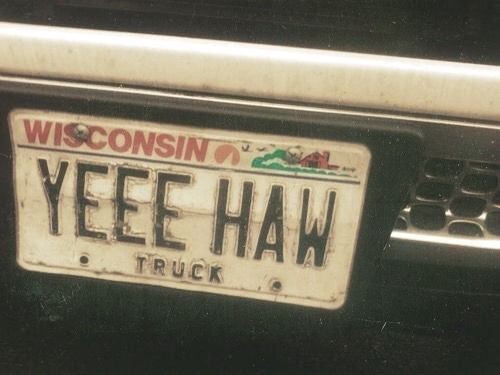






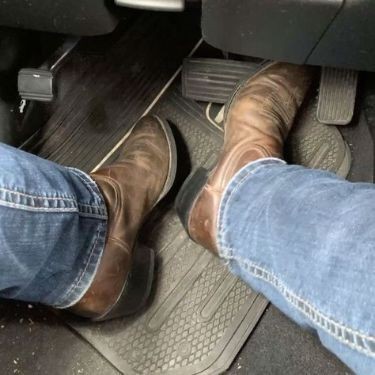

𝐿𝑎𝑛𝑎 𝑠𝑎𝑖𝑑 𝑤𝑒𝑟𝑒 𝑔𝑜𝑖𝑛𝑔 𝐶𝑢𝑛𝑡𝑟𝑦 🐴
#lasso#lasso lana del rey#lana del slay#romantizing life#lana del ray aesthetic#lana del ray aka lizzy grant#lana del rey#rdr2#girl interrupted syndrome#girlcore#arthur morgan#gaslight gatekeep girlboss#girlblogging#lanita#Spotify
7 notes
·
View notes
Text
#lana del rey#spotify#song#girlblogging#girlblogger#girlblog ♡#lana del rey aesthetic#coquette#coquette aesthetic#just girly things#coquette dollete#vintage summer#this song is so good#⋆ ˚。⋆୨୧˚ ˚୨୧⋆。˚ ⋆
2 notes
·
View notes
Text
Lana Del Rey - Summertime (The Gershwin Version - Official Video)
youtube
21 notes
·
View notes
Text




Summertime (The Gershwin Version)
2020
18 notes
·
View notes
Text

Summertime 🌊
And the livin' is easy
16 notes
·
View notes
Text
#lana del ray aka lizzy grant#spotify#lana del bae#lana del rey#lizzi grant#lana unreleased#lizzy grant#norman fucking rockwell#lana del rey nfr#lizzie grant#lanita#honeymoon#lana del rey photo#lana del rey photoshoot#did you know there’s a tunnel under ocean blvd#lana del rey aesthetic#lana del rey gif#blue banisters#new music#george gershwin#summertime#lana is god
6 notes
·
View notes
Text

august 12, 1970
At Harvard, Janis Joplin performs what will be her final concert, ending with a version of Gershwin's "Summertime."
8 notes
·
View notes
Note
54 🤞🏽
this kind of the vibe but only for a little bit :( i wish i had a better song for u 😭
3 notes
·
View notes
Text
Descriptions & Propaganda
Chameleon
Composed by Herbie Hancock
Notable versions: Herbie Hancock (x), Maceo Parker (x), Maynard Ferguson (x)
Propaganda: None submitted.
Summertime
Composed by George Gershwin, with lyrics by DuBose Heyward
Notable versions: Billie Holiday (x), Sidney Bechet (x), Louis Armstrong and Ella Fitzgerald (x)
Propaganda: simply one of the greatest songs of all time. sampled/syncopated in so many other great songs too (e.g. doin time by sublime/lana…)
every version of it from ella fitzgerald to sublime EATS... what other song has done it like this
didn’t put them in notable versions bc they’re not jazz but some bonus folk covers bc i find it works surprisingly well as a folk song: peter seeger (x) and doc watson (x)
10 notes
·
View notes
Text
youtube
Song Review: Bobbie Nelson and Amanda Shires feat. Willie Nelson - “Summertime”
Having Willie Nelson sing on Bobbie Nelson and Amanda Shires’ version of “Summertime” is a thoughtful tribute to Willie’s late “little sister.”
But his voice sounds piped in from another dimension and his presence does little more than take away from Shires’ delightful vocal performance. His few tugs on Trigger would’ve been sufficient.
The Gershwins’ “Summertime” announces the June 23 arrival of Bobbie Nelson and Shires’ Loving You. It’s a jazzy little track that puts on spotlight on Bobbie Nelson’s piano; Shires also plays a restrained fiddle solo to herald Nashville Sound production values that arrive about halfway through.
It’s a lovely track, despite being overloaded with unnecessary goop.
Loving You was recorded over six days, months before Bobbie Nelson’s 2022 death and includes the pianist’s only composition, the instrumental title track, alongside such songs as “Always on My Mind,” “Angel Flying too Close to the Ground,” “Over the Rainbow” and others.
“We chose these songs because they’re songs that she loved, songs that meant the world to her and her personal journey,” Shires said in a statement.
Grade card: Bobbie Nelson and Amanda Shires feat. Willie Nelson - “Summertime” - B
4/27/23
#Youtube#bobbie nelson#amanda shires#willie nelson#loving you#summertime#george gershwin#ira gershwin
6 notes
·
View notes
Text
John Coltrane Reissue Review: Evenings at the Village Gate: John Coltrane with Eric Dolphy
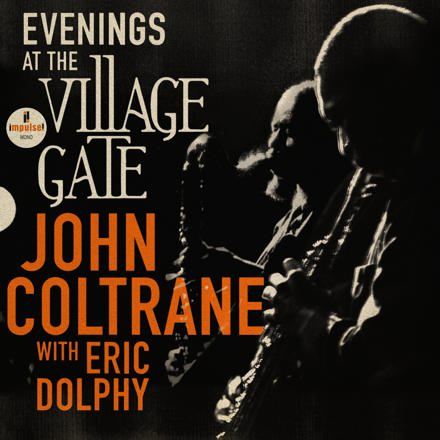
(Impulse!/UMe)
BY JORDAN MAINZER
Not even two years after A Love Supreme: Live in Seattle saw the light from Joe Brazil's private collection, a new John Coltrane treasure has been given to us, unearthed this time by accident. A Bob Dylan archivist, scouring through the archives of the New York Public Library for the Performing Arts, found an August 1961 recording of John Coltrane with Eric Dolphy at Greenwich Village's long-shuttered Village Gate. While Coltrane's November performances from the same year at the Village Vanguard have long been available, either as part of his 1962 live album or a 1997 box set, this collection shows some familiar players a bit rougher around the edges. Future Nina Simone and Dylan engineer Richard Alderson, who wanted to test a newly found single ribbon microphone, decided to record the set, and everything from McCoy Tyner's restrained piano to, well, the overall sound quality, has the vibe of a group of geniuses still figuring things out, a fascinating snapshot in an ever-changing time in jazz.
In an era where our most revered artists take seemingly forever to release new albums, it's hard to fathom just what luminaries like Coltrane did back then, and the rapid pace of change they faced in a burgeoning music industry. In March, he released My Favorite Things on Atlantic, which yielded surprising hits in adaptations of George Gershwin's "Summertime" and Rodgers and Hammerstein's "My Favorite Things", the latter of which received significant radio airplay. Two months later, his Atlantic contract was bought by Impulse! While he kept Tyner and drummer Elvin Jones in his band, he replaced bassist Steve Davis with a young Reggie Workman and brought on multi-instrumentalist Eric Dolphy, forming the basis of a live quintet. His studio ensemble grew even larger on the first album he recorded for Impulse!, Africa/Brass, also one of his first to employ two bass players. Eventually, though, he'd settle into the Classic Quartet, Jimmy Garrison replacing Workman for the next several years, the four producing stone cold classics like, yes, A Love Supreme. It's impossible to separate this context when listening to Evenings at the Village Gate: John Coltrane with Eric Dolphy in all of its rawness.
Really, Evenings at the Village Gate is a true moment in time and one of arguable significance, though listening to it is a fascinating exercise. You constantly find yourself wishing you were there to witness it, watching an audience in real time react to where you know jazz would end up. As Jones' pattering drums and Workman and Tyner's steady bass and piano introduce "My Favorite Things", Dolphy subtly flutters his clarinet. Six minutes in, Coltrane announces himself with a brawny saxophone line before blasting streaks of notes above the band. When he very occasionally returns to the song's main refrain, it's like a sigh of relief before he embarks on another freeform journey. Sometimes, you can hear an audience member clapping, thinking his solo has finished, but he keeps going. Dolphy offers a similarly tattered solo on Benny Carter's "When Lights Are Low", while the rest of the band lurches. Tyner's solo, for example, is sprinkled but so low in the mix you can almost clearly hear background chatter in the club, and you can definitely decipher Workman's plucks. The band is risky and adventurous, unafraid to fail.
The final three tracks performed would eventually be recorded, including "Impressions", a Coltrane composition first set to tape in 1962. The version on Evenings at the Village Gate is an early run-through the way a lot of jazz instrumentalists do today. On one hand, hearing him breathlessly and immediately whittle away at schemas of jazz must have been thrilling. On the other, compared to the live versions of the song from months later, on this one, Coltrane embraces true chaos rather than controlled chaos. Only Jones and Tyner are truly honed in here, the former shining with his dexterousness throughout and underrated dynamism in his be-bop duet with the latter. If you've always thought Coltrane's recording of "Greensleeves", meanwhile, sounds a little bit like "My Favorite Things", Tyner somewhat interpolates the latter song as Jones' drum fills pervade the performance. Tyner's two-handed solo mid-way through simultaneously showcases the song's theme and his own phrasing, while Coltrane and Dolphy enter much later, as if they've been stockpiling on reserves before gradually taking the tune to dizzying new heights.
If there's a true highlight on Evenings at the Village Gate, it's of course the only known recorded version of Africa/Brass' "Africa". Art Davis fills in on additional bass drones, with Coltrane on tenor saxophone, and the song feels like the most the band had been in sync all night. Perhaps that's because there's nothing else to compare it to, but the performance is still thrilling taken on its own, from Jones' raindrop pitter patters to Tyner's unshakeable refrain. Coltrane and Dolphy give way to the rest of the band for a while, and the tune slowly ascends as they tease a return, first giving Jones his due with a rolling solo and then actually returning to rapturous applause, skronking and squeaking away. You have to think that some members of the audience had no conception for what they just saw. You also have to think the set made them want to dive in further.
youtube
#album review#john coltrane#new york public library for the performing arts#Evenings at the Village Gate: John Coltrane with Eric Dolphy#eric dolphy#impulse!#ume#a love supreme: live in seattle#joe brazil#bob dylan#village gate#village vanguard#nina simone#richard alderson#mccoy tyner#my favorite things#george gershwin#atlantic#elvin jones#steve davis#reggie workman#africa/brass#jimmy garrison#a love supreme#benny carter#art davis#richard rodgers#rodgers and hammerstein#oscar hammerstein#evenings at the village gate
2 notes
·
View notes